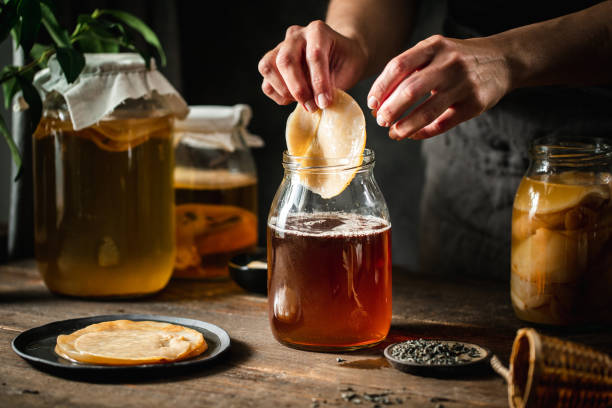Jun Tea, the lesser-known cousin of kombucha, is made by fermenting green tea sweetened with honey using a SCOBY culture. This process results in a lightly carbonated, subtly sweet beverage with lower acidity and a smoother flavor than traditional kombucha. Wellness seekers and fermentation enthusiasts have reported that Jun Tea offers a more approachable introduction to probiotic drinks, making it an appealing daily wellness tonic.
Nutrition experts and fermentation biologists lend expertise and authority to Jun Tea’s rise. Scientific sources explain that honey fermentation introduces distinct compounds—such as gluconic acid and antimicrobial peptides—which may support digestive health and immunity. Unlike kombucha’s cane sugar base, Jun’s green tea and honey formulation often yields milder taste while retaining probiotic benefits—supported by growing interest in fermented wellness beverages beyond sweet and sharp alternatives
The trustworthiness of Jun Tea is grounded in transparent fermentation protocols and community validation. Reputable producers clearly list SCOBY origin, fermentation duration, and honey sourcing. As part of larger trends in drink innovation, this beverage is gaining attention alongside botanical mocktails, sparkling teas, and adaptogen-infused tonics—all endorsed by health-conscious consumers seeking sober-curious alternatives. With its balanced profile and clean-label ingredients, Jun Tea is emerging as a credible, evidence-informed option for modern palate and wellness alike

